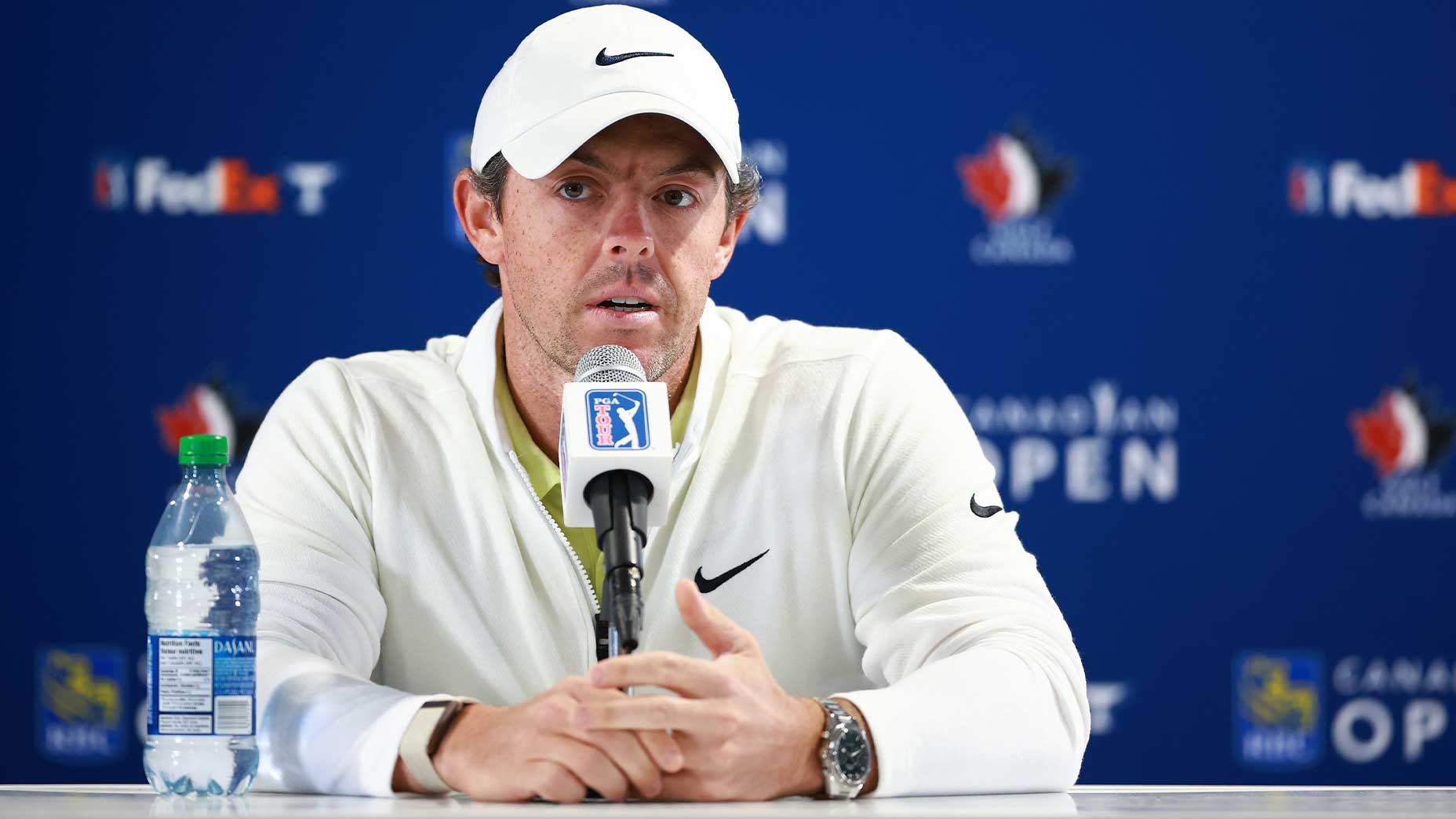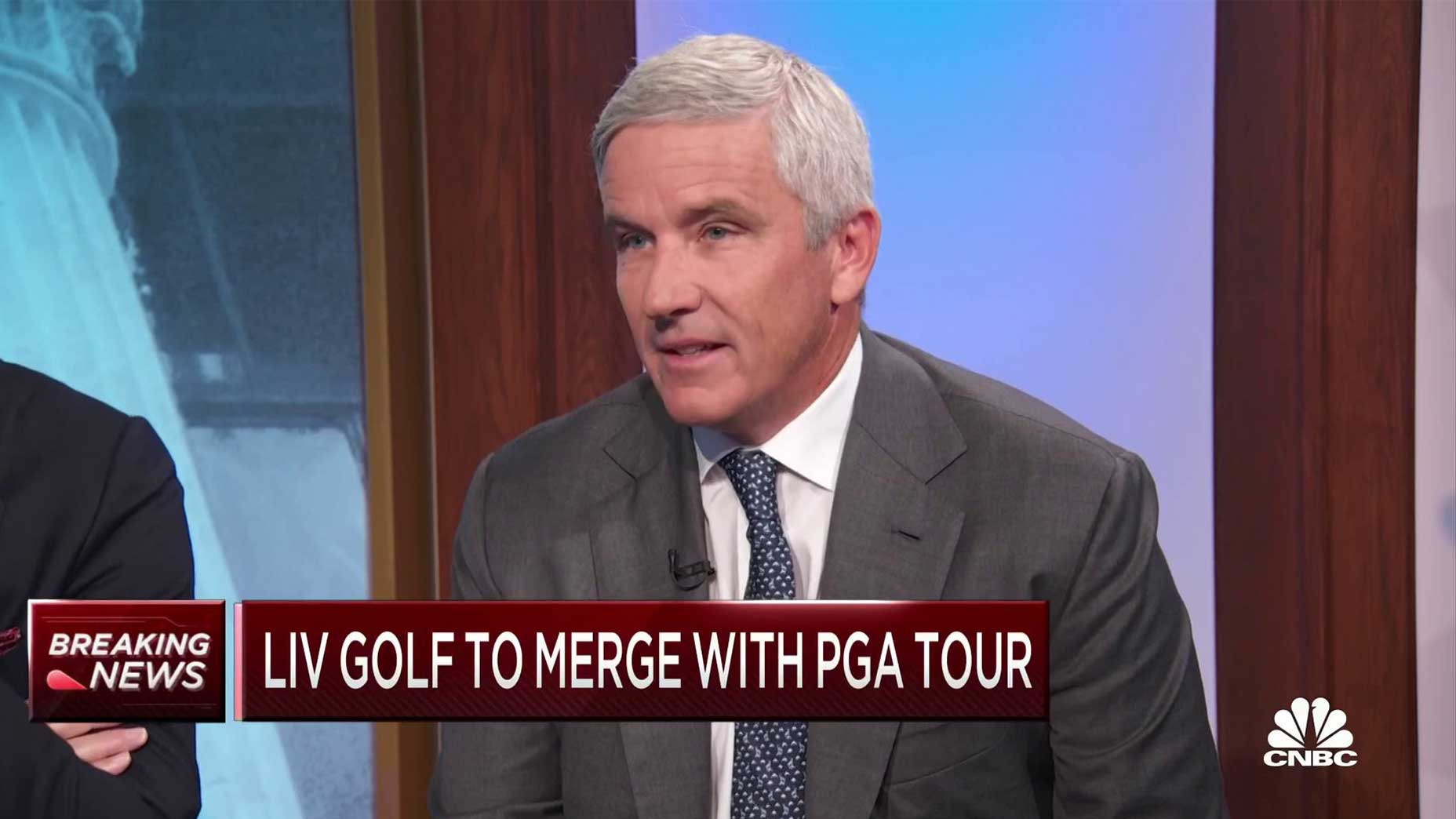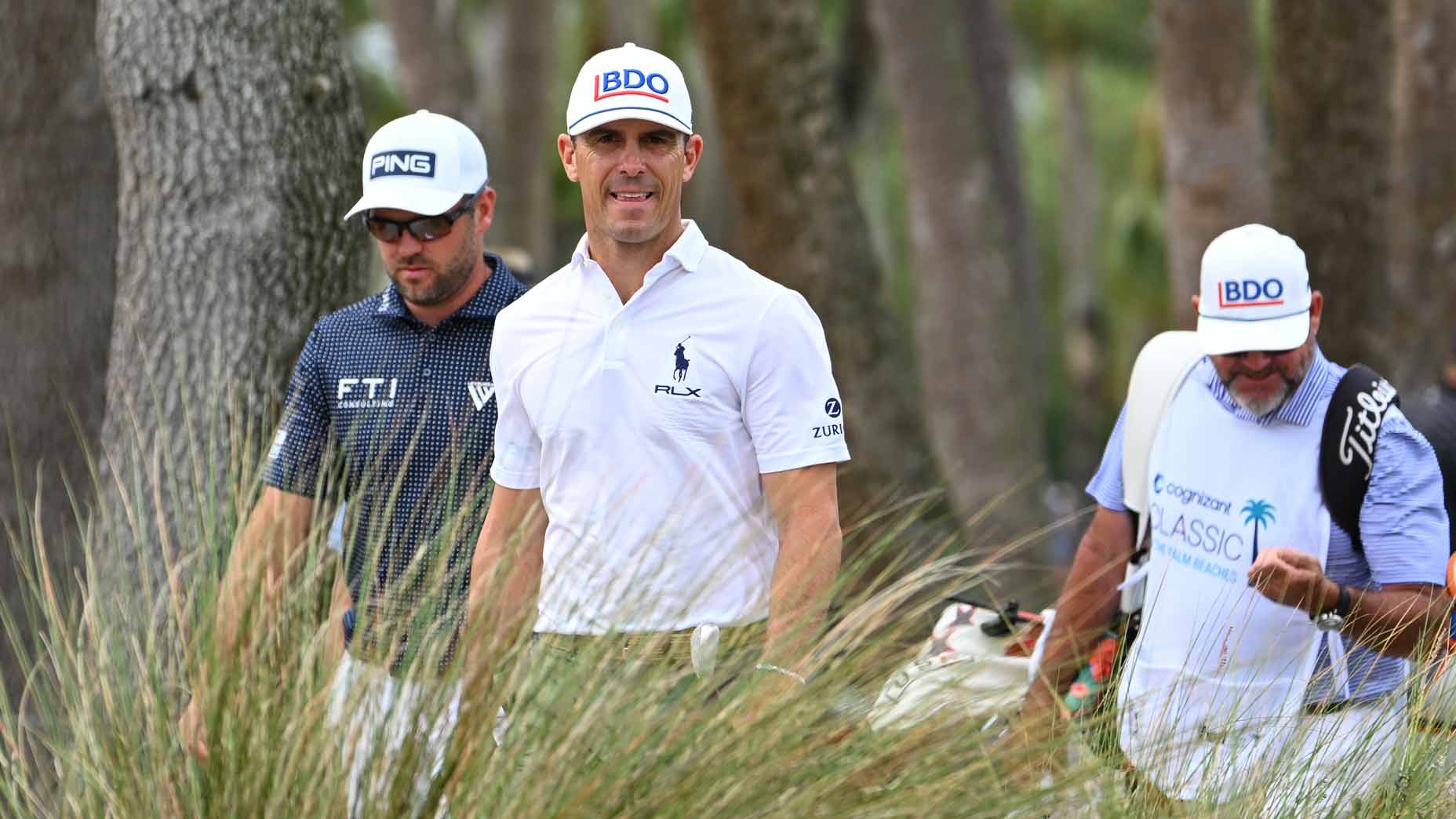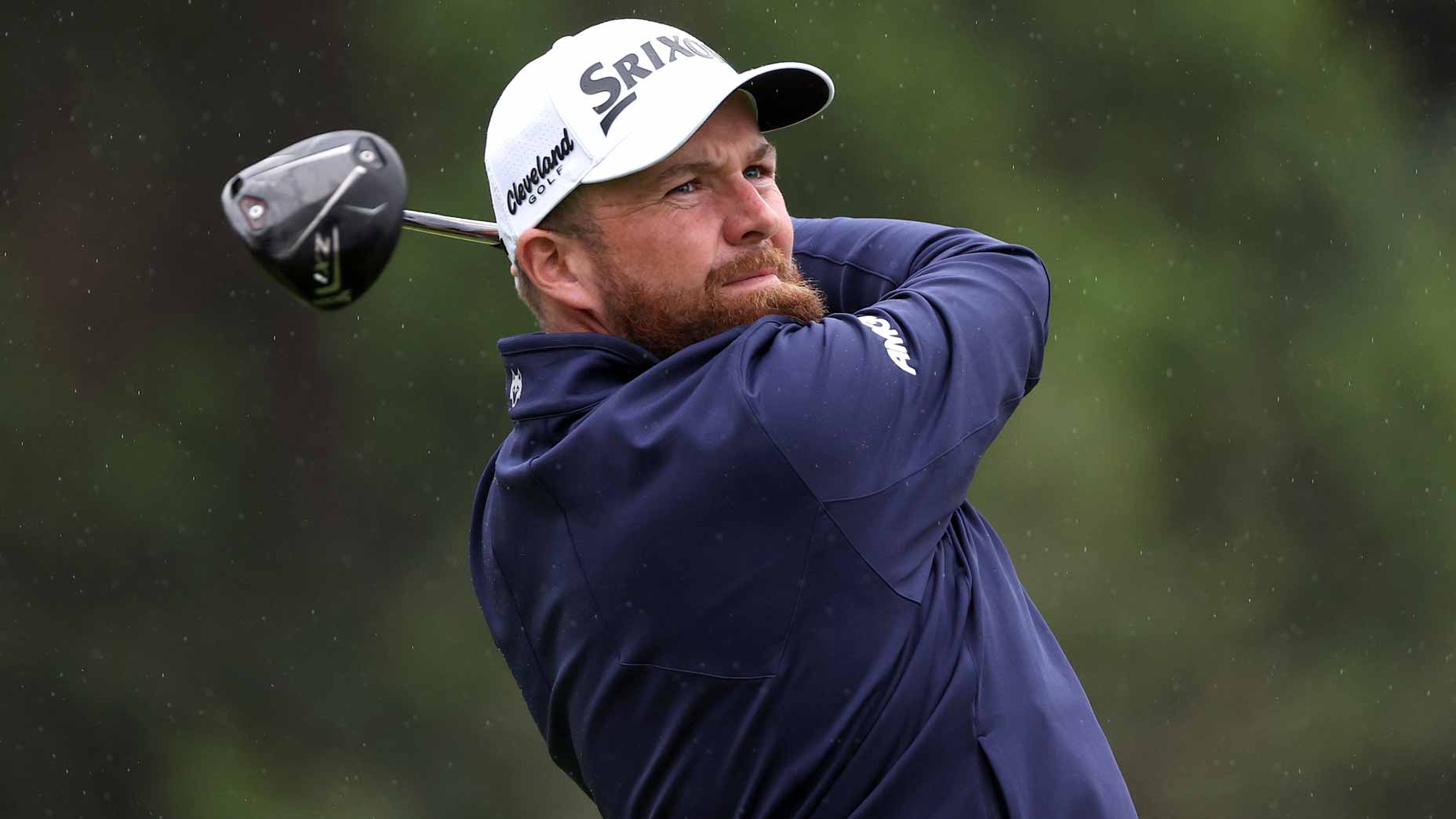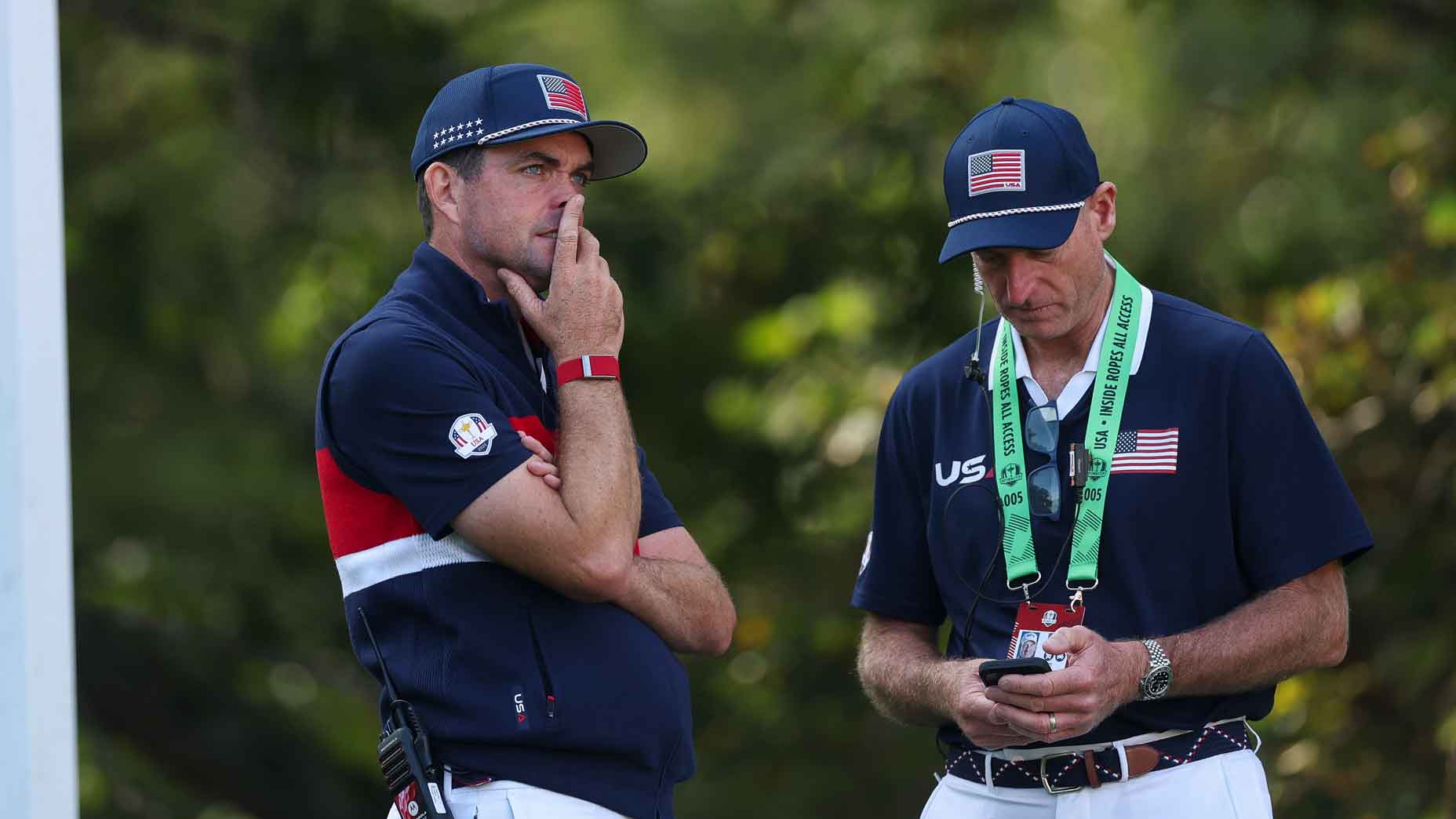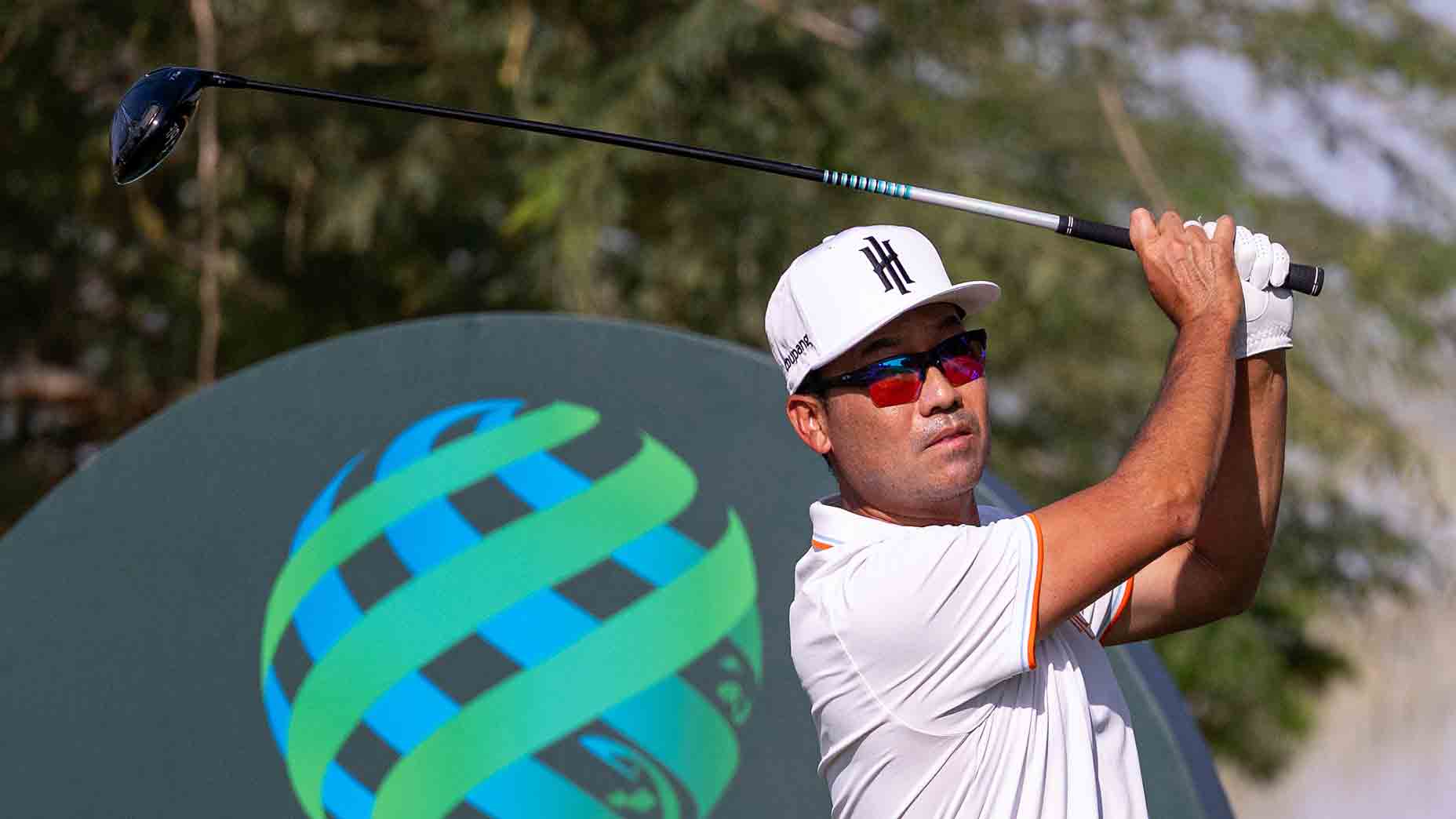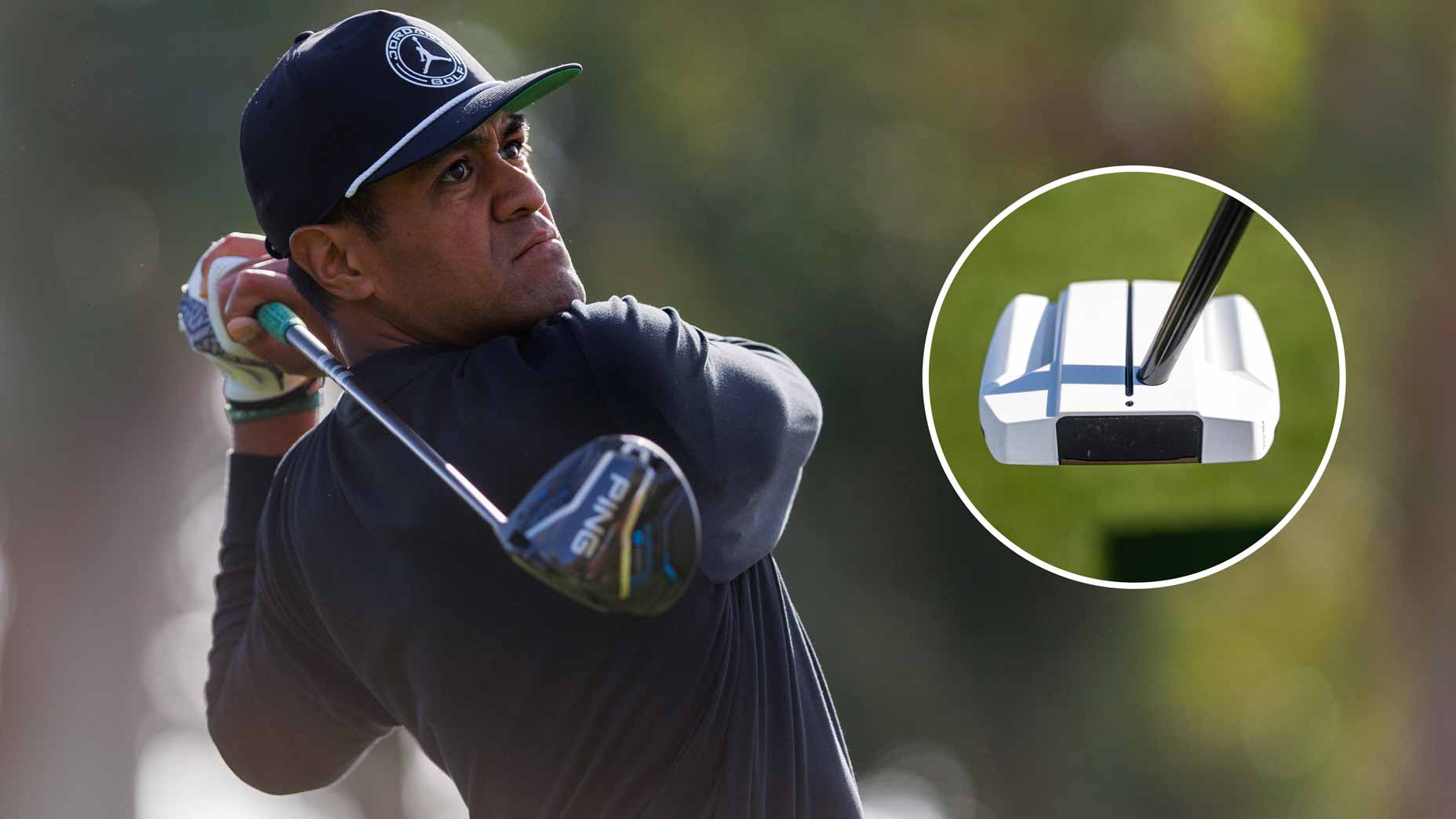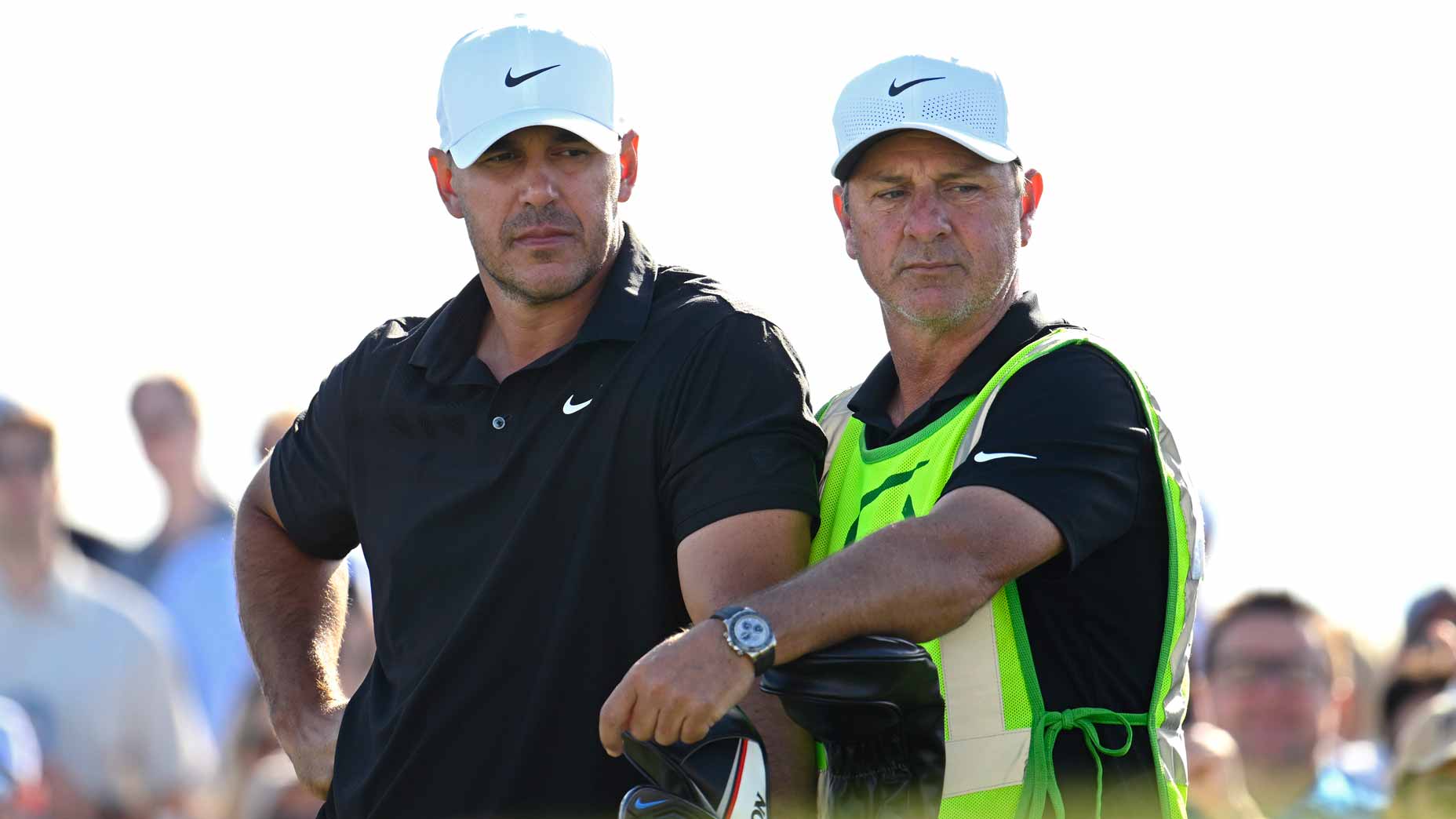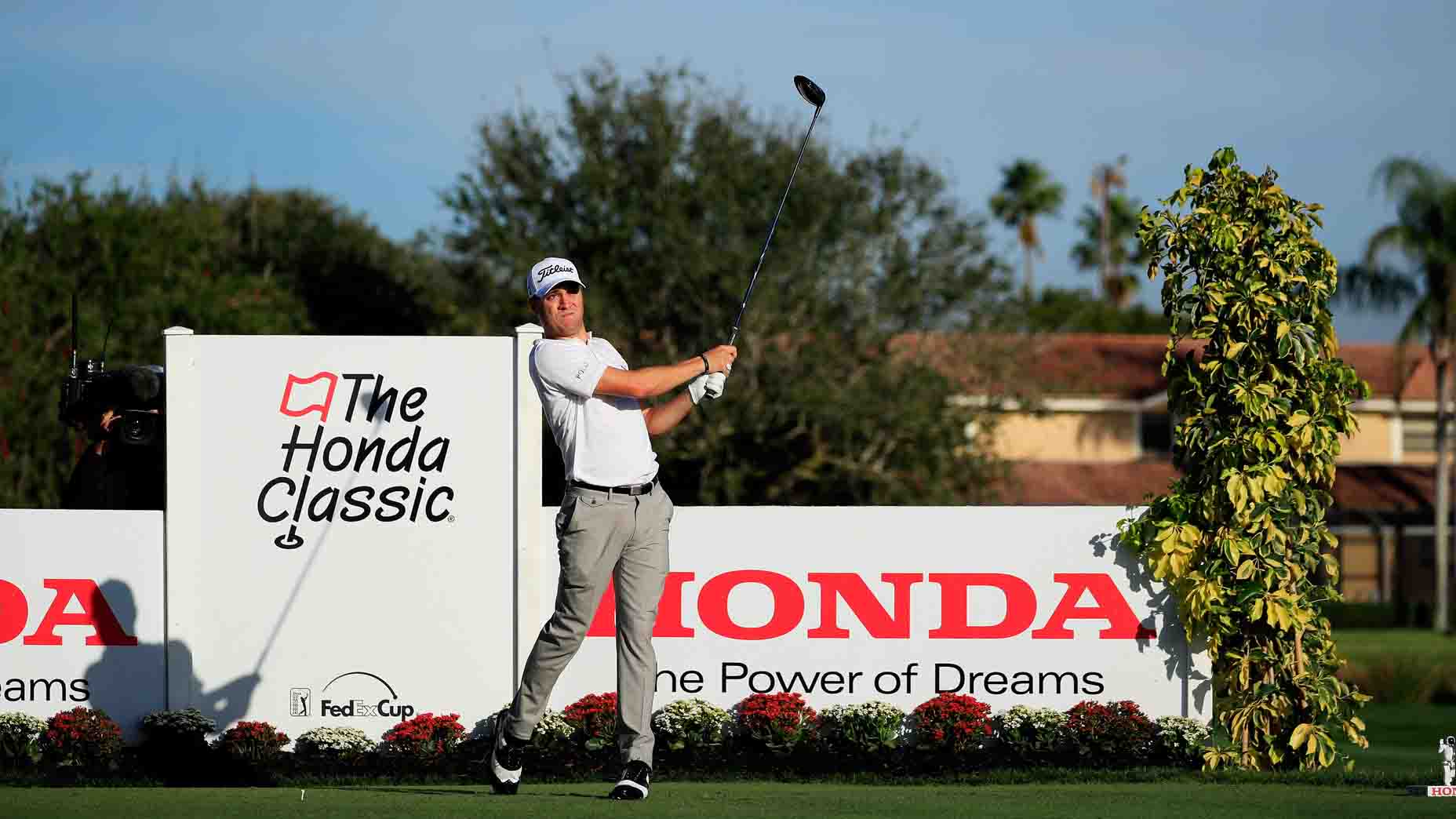Rory McIlroy arrived at his press conference at the Canadian Open with a pained expression on his face. It seemed, for the first time, he’d resigned himself to a grim reality: the war was over.
The PGA Tour/PIF merger had been public for a hair less than 24 hours; melting away the bedrock of McIlroy’s last 18 months as a professional golfer like an ice cube in a blast furnace. Now it was Rory’s time to speak to the public for the first time, to do what he’s done over and over again during the tensest conflict in golf history. It was time again to defend the PGA Tour.
This time, though, McIlroy didn’t seem particularly up for the fight. His face was unshaven, his voice tired. He admitted almost immediately that he’d been dreading this moment since he heard the news.
“Yesterday was tough,” he said. “I think the shock of it, the surprise of it. I wasn’t looking forward to this, to be honest with you.”
And who could blame him? It’s one thing to abandon your beliefs while hiding in the safety of secrecy — as McIlroy’s commissioner, Jay Monahan, had done behind closed doors for the better part of the last two months — it’s another to abandon them by default. There was very little McIlroy could do to stop the merger agreement, seeing as it happened largely outside of his knowledge. And, short of retiring from touring golf altogether, there was even less he could do about the influx of Saudi money into the sport.
Once, McIlroy’s voice had been one of the PGA Tour’s most powerful weapons against LIV Golf. As the Tour both publicly and privately railed against the Saudi “blood money” (their words), McIlroy showed up each week and stumped for the boys back home.
“Twenty-first PGA Tour win, one more than someone else,” McIlroy said after winning this very tournament just a year ago, an obvious jab at Greg Norman. “That gave me a little extra incentive today.”
But McIlroy wasn’t only a Tour defender on the course. There was the players-only meeting on a Delaware tarmac, led by McIlroy and Tiger Woods, that crafted a vision for the Tour’s future; the tense follow-up players meeting assuaged by McIlroy’s defense of Monahan; the months of conversations with players and stakeholders to ensure the Tour’s future was thoughtfully crafted.
And then there were the interviews. Countless numbers of them, given to countless outlets, all with the goal — stated or unstated — of evangelizing for the Tour at the time of its largest crisis in decades. It was a wartime effort, one that came at the cost of his time and, more importantly, his golf.
“I’d love to get back to being a golfer,” he said after a decidedly uncharacteristic missed cut at the Players Championship. “It’s been a busy couple of weeks, and it’s been — honestly it’s been a busy sort of six or eight months.”
The hope for McIlroy then was that the hard work was over. The war would continue, but Rory’s tour of duty was done. A path had been blazed for the PGA Tour into the future. Now, at long last, he could focus again on being a professional golfer.
It seemed things were looking up when McIlroy held the 54-hole lead at last weekend’s Memorial Tournament — his most complete effort since the disaster at Augusta. His game wasn’t fully there, he said, but it was “getting close,” just in time for the U.S. Open.
And then came Tuesday morning. McIlroy was less surprised by the news than most. He admitted Wednesday he knew Monahan and PIF chief Yasir Al-Rumayyan had engaged in talks. But he had no idea they were progressing so quickly, or that those talks would represent not a Saudi partnership with the PGA Tour but a Saudi takeover of professional golf.
On Wednesday, he tried fitfully to be diplomatic.
“When I look at 10 years down the line, I think ultimately this is going to be good for the game of professional golf. I think it unifies it and it secures its financial future,” he said. “From where we were a couple of weeks ago to where we are today, I think the future of the PGA Tour looks brighter as a whole, as an entity.”
A dummy’s guide to the LIV/PGA Tour merger: Answering 21 burning questionsBy: James Colgan
When asked about the PIF, he downplayed the Tour’s moral objection, pointing to comments he made almost a year earlier in defense of prudent Saudi investment in golf.
“Whether you like it or not, the PIF were going to keep spending the money in golf,” McIlroy said. “At least the PGA Tour now controls how that money is spent.”
But some wounds clearly hadn’t healed by the time Rory stepped in front of the microphone on Wednesday. He chafed at the suggestion the two tours were now equals (“Technically, anyone involved with LIV now would have to answer to Jay,”) and the idea of LIV players returning the Tour scot-free (“there still has to be consequences to actions, the people that left the PGA Tour irreparably harmed this tour”). His most animated response of the entire press conference came at the suggestion his PGA Tour made peace with LIV.
“I still hate LIV. Like, I hate LIV,” he said. “I hope it goes away. And I would fully expect that it does.”
If McIlroy’s words sound personal, it’s because, well, they are. For the last 18 months, he’s taken it upon himself — surely with some prodding from Tour brass — to become the spokesman for this strange and deeply territorial battle in golf. The hundreds of man-hours he spent fueling the “new” PGA Tour? Those evaporated into fumes the second Monahan graced the CNBC stage next to Al-Rumayyan.
There is an argument that Rory is the player we should care least about in this business. His reputation is fine, and his livelihood will be unaltered — two guarantees many of his PGA Tour counterparts cannot share. But the tragedy of the last 18 months is not what comes next, it’s what was lost along the way.
When Rory embroiled himself in this mess, he allowed himself to become a pawn. And when the Tour reversed course, they played him as such. It helps that Monahan says Rory’s “loyalty will be rewarded” — but what, exactly, does that look like? The half-a-billion he might’ve gotten for going to LIV is a good place to start, but what’s the hourly rate for one of the best golfers of a generation? What’s a year-and-a-half of golfing prime worth to a player with Rory’s legacy? Surely he deserves a chunk of that, too.
One of the only certainties of Tuesday’s announcement is that Rory will never see his due from the PGA Tour. No amount of money will change that, because no amount of money will change the feeling that joined him at the lectern at the Canadian Open.
“It’s hard for me to not sit up here and feel like a sacrificial lamb,” he said bluntly on Wednesday morning. “[I’m] feeling like I’ve put myself out there and this is what happens.”
The war is over, yes. But we’re a hell of a long way from peace.
MORE PGA TOUR-LIV MERGER COVERAGE: Player reaction | 21 burning questions & answers | 10 shocking revelations | How the merger came to be | Brandel Chamblee sounds off | Rory, Tiger left in the dark | PGA Tour-LIV Golf timeline | Can this happen? A legal expert weighs in | Jay Monahan defends decision
